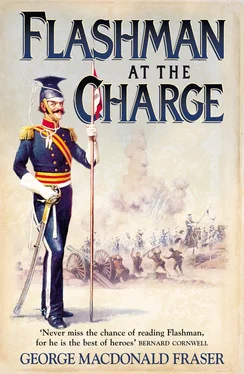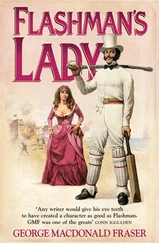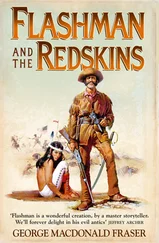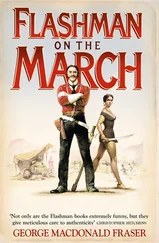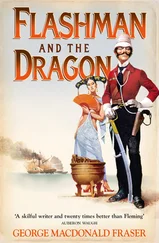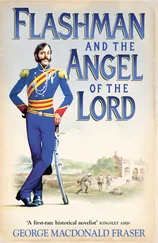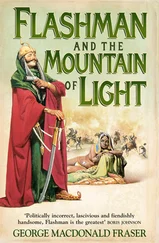In any event, this memorial isn’t about the history of the war, but about me, so I’ll confine myself to that all-important subject, and let the war take its chance, just the way the government did.
We got to Varna, and the stink was hellish. The streets were filthy, there were stretcher-parties everywhere, ferrying fever cases from the camps outside town to the sewers they called hospitals, there was no order about anything, and I thought, well, we’ll make our quarters on board until we can find decent lodgings at leisure. So leaving Willy, I went off to report myself to Raglan.
He was full of affability and good nature, as always, shook hands warmly, called for refreshment for me, inquired at great length about Willy’s health and spirits, and then settled down to read the despatches I’d brought. It was close and warm in his office, even with the verandah doors wide and a nigger working a fan; Raglan was sweating in his shirt-sleeves, and as I drank my whistle-belly at a side-table and studied him, I could see that even a couple of months out east had aged him. His hair was snow-white, the lines on his face were deeper than ever, the flesh was all fallen in on his skinny wrist – he was an old man, and he looked and sounded it. And his face grew tireder as he read; when he had done he summoned George Brown, who had the Light Division, and was his bosom pal. Brown read the despatch, and they looked at each other.
‘It is to be Sevastopol,’ says Raglan. ‘The government’s direction seems quite clear to me.’
‘Provided,’ says Brown, ‘both you and the French commander believe the matter can be carried through successfully. In effect, they leave the decision to you, and to St Arnaud.’
‘Hardly,’ says Raglan, and picked up a paper. ‘Newcastle includes a personal aide memoire in which he emphasises the wishes of the Ministers – it is all Sevastopol, you see.’
‘What do we know about Sevastopol – its defences, its garrison? How many men can the Russians oppose to us if we invade Crimea?’
‘Well, my dear Sir George,’ says Raglan, ‘we know very little, you see. There are no reconnaissance reports, but we believe the defences to be strong. On the other hand, I know St Arnaud thinks it unlikely there can be more than 70,000 Russians mustered in the Crimean peninsula.’
‘About our own numbers,’ says Brown.
‘Precisely, but that is only conjecture. There may be fewer, there may well be more. It is all so uncertain.’ He sighed, and kneaded his brow with his left hand, rather abstracted. ‘I cannot say for sure that they might not field 100,000 men, you know. There has been no blockade, and nothing to prevent their troop movements.’
‘And we would have to invade across the Black Sea, make a foothold, perhaps face odds of four to three, invest Sevastopol, reduce it speedily – or else carry on a siege through a Russian winter – and all this while relying solely on our fleet for supply, while the Russians may send into the Crimea what strength they choose.’
‘Exactly, Sir George. Meanwhile, only one fourth of our siege equipment has arrived. Nor is the army in the best of health, and I believe the French to be rather worse.’
I listened to this with mounting horror – not so much at what they were saying, but how they said it. Perfectly calmly, reasonably, and without visible emotion, they were rehearsing a formula which even I, ignorant staff-walloper that I was, could see was one for disaster. But I could only keep mum, clutching my pot of beer and listening.
‘I should welcome your observations, my dear Sir George,’ says Raglan.
Brown’s face was a study. He was an old Scotch war horse this, and nobody’s fool, but he knew Raglan, and he knew something of the politics of power and warfare. He put the despatch back on the table.
‘As to the enterprise of Sevastopol which the Ministers appear to be suggesting,’ says he, ‘I ask myself how our old master the Duke would have seen it. I believe he would have turned it down flat – there is not enough information about the Crimea and the Russians, and our armies are reduced to the point where we have no leeway to work on. He would not have taken the terrible responsibility of launching such a campaign.’ 12
You could see the relief spreading over Raglan’s old face like water.
‘I concur exactly in what you say, Sir George,’ says he, ‘in which case—’
‘On the other hand,’ says Brown, ‘I judge from this despatch that the government are determined on Sevastopol. They have made up their minds at home. Now, if you decline to accept the responsibility, what will they do? In my opinion, they will recall you; in fine, if you will not do the job, they’ll send out someone who will.’
Raglan’s face lengthened, and I saw an almost pettish set to his mouth as he said:
‘Dear me, that is to be very precise, Sir George. Do you really think so?’
‘I do, sir. As I see it, things have reached a pass where they will have action, whatever it may be.’ He was breathing heavy, I noticed. ‘And I believe that with them, one place is as good as another.’
Raglan sighed. ‘It may be as you say; it may be. Sevastopol. Sevastopol. I wonder why? Why that, rather than the Danube or the Caucasus?’ He glanced round, as though he expected to see the answer on the wall, and noticed me. ‘Ah, Colonel Flashman, perhaps you can enlighten us a little in this. Are you aware of any factor in affairs at home that may have determined the government on this especial venture?’
I told him what I knew – that the press was yelping Sevastopol right and left, and that everyone had it on the brain.
‘Do they know where it is?’ says Brown.
I wasn’t too sure myself where it was, but I said I supposed they did. Raglan tapped his lip, looking at the despatch as though he hoped it would go away.
‘Did you see anyone when the despatch was delivered to you – Newcastle, or Argyll, perhaps?’
‘I saw Lord Palmerston, sir. He remarked that the government were confident that the occupation of Sevastopol would be an excellent thing, but that it would be a damned serious business. Those were his words, sir.’
Brown gave a bark of disgust, and Raglan laughed. ‘We may agree with him, I think. Well, we must see what our Gallic allies think, I suppose, before we can reach a fruitful conclusion.’
So they did – all the chattering Frogs of the day, with St Arnaud, the little mountebank from the Foreign Legion, who had once earned his living on the stage and looked like an ice-cream vendor, with his perky moustache, at their head. He had the feverish look of a dying man – which he was – and Canrobert, with his long hair and ridiculous curling moustaches, wasn’t one to inspire confidence either. Not that they were worse than our own crew – the ass Cambridge, and Evans snorting and growling, and old England burbling, and Raglan sitting at the table head, like a vicar at a prize-giving, being polite and expressing gratified pleasure at every opinion, no matter what it was.
And there was no lack of opinions. Raglan thought an invasion might well come off – given luck – Brown was dead against it, but at first the Frogs were all for it, and St Arnaud said we should be in Sevastopol by Christmas, death of his life and sacred blue. Our navy people opposed the thing, and Raglan got peevish, and then the Frogs began to have their doubts, and everything fell into confusion. They had another meeting, at which I wasn’t present, and then the word came out: the Frogs and Raglan were in agreement again, Brown was over-ruled and the navy with him, we were to go to the Crimea.
‘I daresay the sea air will do us good and raise everyone’s spirits,’ says Raglan, and by God, he didn’t raise mine. I’ve wondered since, if I could have done anything about it, and decided I could. But what? If Otto Bismarck had been in my boots and uniform, I daresay he could have steered them away, as even a junior man can, if he goes about it right. But I’ve never meddled if I could avoid it, where great affairs are concerned; it’s too chancy. Mind you, if I could have seen ahead I’d have sneaked into Raglan’s tent one night and brained the old fool, but I didn’t know, you see.
Читать дальше
